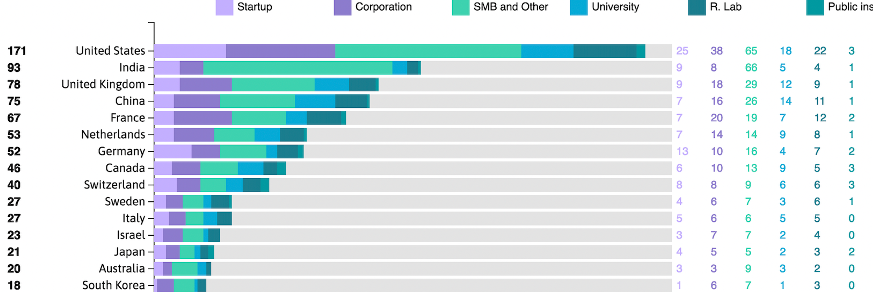Roads are nowadays essential to live in our society, they allow us to connect cities, facilitate the transport of goods as well as a more agile mobility between people.
The projection for the future is the search for ever more sustainable roles, and of course, this also includes roads, being a very important technology nowadays.
Countries such as the United States, Japan, the United Kingdom, Sweden and China are at the forefront of road innovations, smart highways, sustainable roads and efficient highways are just some of the developments they have carried out.
Read on and discover some of the most important innovations that are changing our roads and that will promote sustainable and efficient mobility.

Smart pavements
Smart pavements, created with the aim of adapting to the changing needs of roads. Employing sensors or control systems, they can detect, among other things, temperature, humidity, vibrations in the soil, etc. Among the key players in the sector, US-based company Integrated Roadways is developing a smart pavement composed of large rectangular pieces that are connected modularly. Among its benefits are its quick installation and the capture of traffic data to improve safety and road management.
Solar Roads
Another trend in road development is the implementation of solar roads, a technology that involves embedding solar panels directly into the surface of a roadway to capture sunlight and convert it into electricity. They offer a decentralized and widespread method of generating renewable energy, taking advantage of underutilized road surfaces.

Companies such as Colas, which created the world’s first photovoltaic road surface solution in France, and Solar Roadways, which installed a series of panels at the Route 66 Welcome Center in Missouri, are carrying out research models to develop efficient roads capable of bringing clean energy to places that are currently poorly covered by power infrastructure while providing a safe surface for traffic.
Self-healing and Resistant Road Surfaces
Highways and roads are exposed to extensive movements and weights causing structural damage such as cracks or potholes, they have a limited life, but this could come to an end with the development of self-repairing materials, those that after suffering damage or malfunction can return to their original state without the need for human repair.
Although similar tech is still widely developed in academic research, companies active in this innovative field are starting growing:
- Basilisk, a startup from the Netherlands that employs bacteria to repair specific structures including roads and bridges. The microorganisms produce calcium carbonate, which can fill cracks and gaps in the concrete and strengthen the material over time.
- CarbonCure, a Canadian startup that has developed a process to make concrete more sustainable, which consists of injecting carbon dioxide during the concrete manufacturing process causing a chemical reaction that makes the material more resistant and durable.
Electric Roads
With the rise of electric vehicles, solutions have been introduced to make people’s lives easier, such as wireless charging roads for EVs, which charge the car as you go. Israeli startup Electreon offers such solutions integrated into the asphalt itself, which bring to a reduction in the use of heavy batteries and the increase of operational hours for the vehicles that get charged while driving, queuing or parking in their infrastructure.
Sustainable road surfaces
Another current problem is the use of pollutants for the creation and asphalting of roads, for which the British company MacRebur has patented a sustainable asphalt solution based on sustainable polymers that favor economic and environmental savings, products such as MR6 or MR8 signed by the company allow a large reduction in carbon emissions to the planet.
Plastic waste represents a major pollution problem, so that more and more companies are looking for ways of leveraging its overproduction. Among them, Dutch company VolkerWessels has patented CinrculinQ, a proposal that combines plastic waste with roads. Their solution is constructed from plastic waste that is manipulated in such a way that it is in the form of sheets, each of these sheets are joined together to form a road. A solution that reduces waste and pollution in its production, as much less machinery is needed.
Green roads can be mentioned as a subtopic in the field of sustainability in construction. It refers to the ways in which vegetation can be integrated into road surfaces to provide a range of environmental benefits, including improved air quality and carbon sequestration.
Green roads allow the conservation of the surrounding ecosystem and have wide-ranging benefits such as favoring the passage of wildlife, reducing CO2 emissions, generating oxygen and generating greater shade on the pavement, thus reducing temperature.
The alternatives presented here have the potential to improve the quality of life of people as well as to look for efficient and sustainable solutions in construction and infrastructures. If research and development in these and similar applications in road tech keep a positive trend in the near future, we could find them on our nearest roads sooner than we think.





